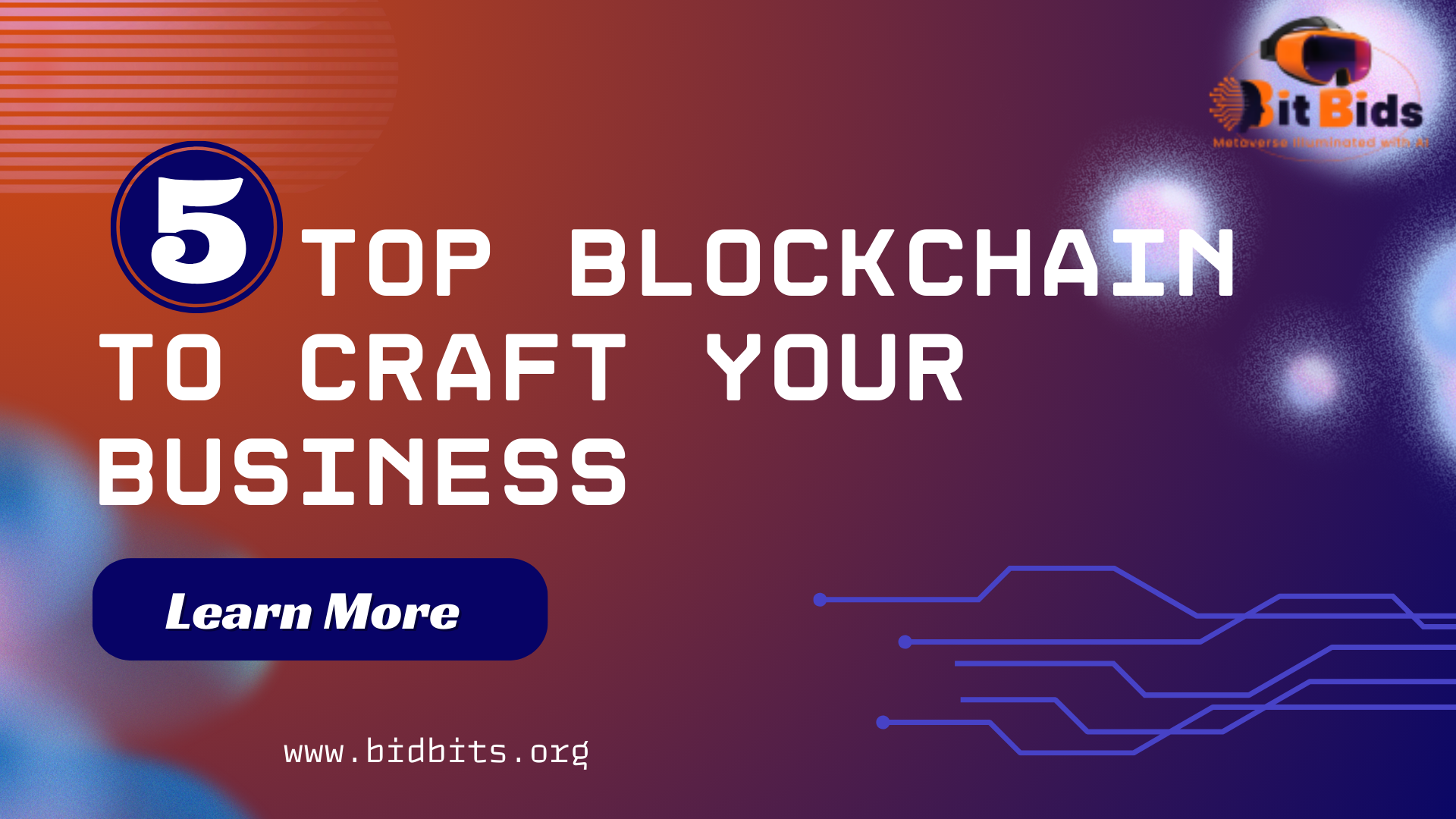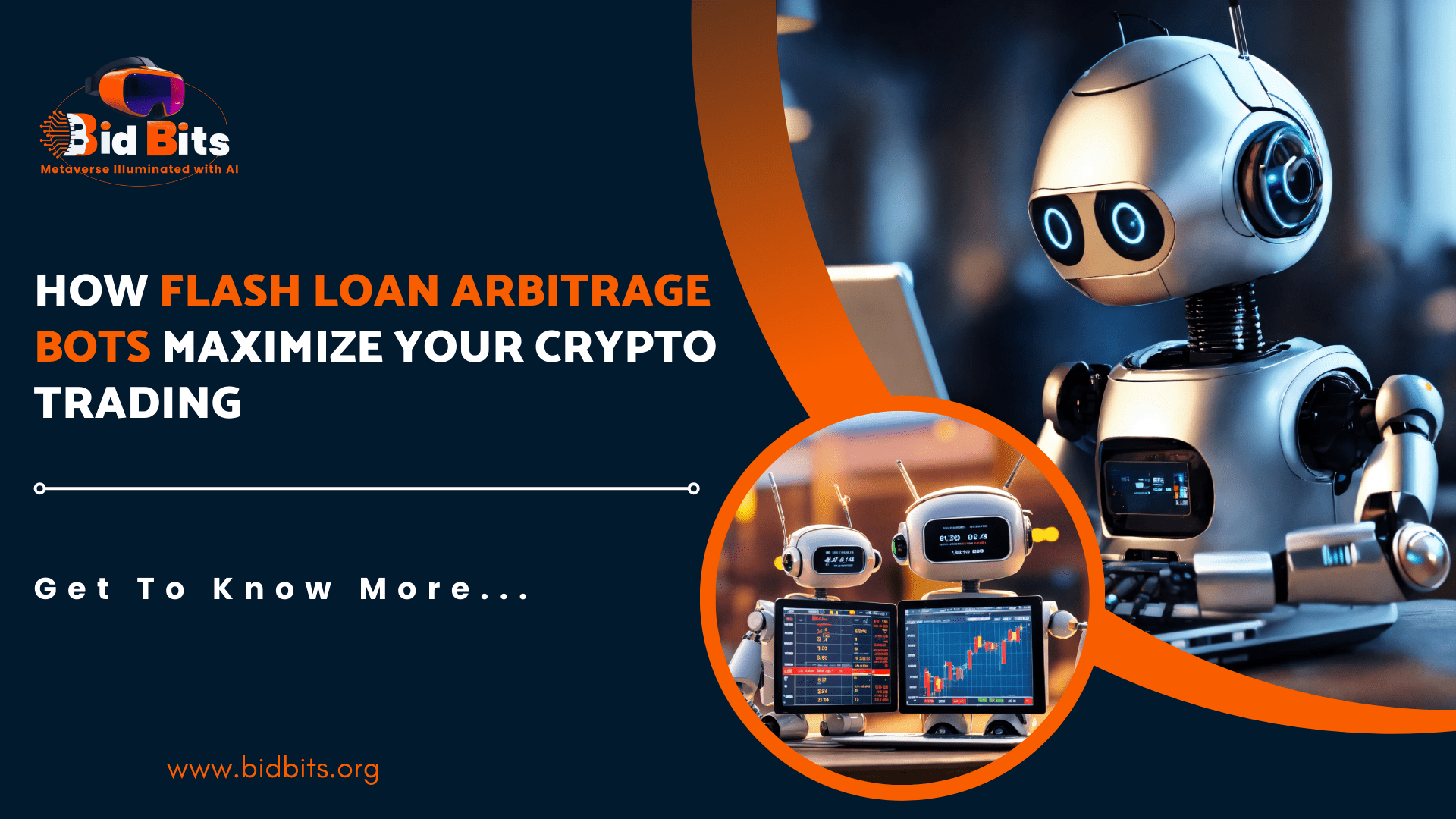A blockchain-driven cryptocurrency exchange serves as a seamless and…
Top 5 Blockchains To Craft Your Business Success

Blockchain networks function as decentralized and immutable ledgers, facilitating the transparent recording and management of diverse assets within a corporate ecosystem. These networks, serving as technical infrastructures, enable applications to interact with ledger and smart contract services. Smart contracts, pivotal in initiating transactions, propagate to every peer node across the network, ensuring immutable ledger entries. Users, ranging from end-users utilizing client applications to network administrators, engage with these networks to monitor various processes such as orders, accounts, and payments. Consortiums often collaborate to establish blockchain networks, governed by agreed-upon policies dictating permissions.
Notably, these networks can take on different forms, including public, private, or permissioned, offering versatile solutions for varied use cases. The shared, single view of transactions fosters confidence, efficiency, and new opportunities in this revolutionary paradigm.
Understand the Realm of Blockchain Development
Blockchain development involves crafting a secure, shared, and immutable distributed ledger technology (DLT) that effectively records transactions and monitors assets, spanning from tangible entities like money and real estate to intangible ones such as copyrights. Its rapid, precise, and secure information-sharing capabilities make it a valuable asset across various industries. Whether monitoring orders, accounts, payments, production, or diverse datasets, blockchain networks ensure transparent and secure delivery for authorized network participants. While blockchain development presents numerous advantages, comprehending the intricacies of blockchain is essential before harnessing its potential value.
The Mechanism of Blockchain Operation
Blockchain provides organizations with a secure means to track and exchange a wide array of items, eliminating the risks associated with duplicate records or data manipulation. The process unfolds as follows:
- Initiate a block by transmitting a transaction to a distributed network of nodes. These nodes meticulously verify the transaction and, upon reaching a consensus, approve it, leading to the recording of all relevant data in a block.
- Each block holds specific information, such as names, locations, times, or costs, which are chosen by the user. The blocks are interconnected, with a new block being generated when the current one is full, utilizing a unique hash code to link back to the preceding block.
- Any alteration in the transaction triggers a change in the hash, easily detecting tampering. This interlinking forms a secure data chain, depicting the movement of assets in terms of location or ownership.
- As new blocks are added, the network employs a consensus mechanism to validate previous blocks, ensuring the overall integrity of the blockchain and safeguarding against fraudulent activities.
- This robust process instills confidence in network members regarding the accuracy of the transaction ledger.
Various Types of Blockchain Systems
There exist four distinct categories of blockchains, namely: Private Blockchain, Public Blockchain, Hybrid Blockchain, and Consortium Blockchain.
Private Blockchain Development
In a private blockchain, access is restricted to selected participants, ensuring a closed and permissioned network. This setup, prioritizing data privacy and security, is ideal for businesses. As a dedicated private blockchain development company, we excel in crafting and customizing private blockchains to meet your precise requirements.
Public Blockchain Development
A public blockchain is a decentralized and open network, enabling universal participation, validation, and access to its data. Employing a consensus mechanism ensures transparency and security. Our services in public blockchain development empower clients to grasp the capabilities of open distributed ledgers for diverse applications.
Hybrid Blockchain Development
A hybrid blockchain integrates features from private and public blockchains, offering flexibility and customization. This approach enables selective transparency and control, utilizing decentralization’s benefits. grasping our proficiency in hybrid blockchain development, we create and deploy tailored solutions that align with your specific needs.
Consortium Blockchain Development
Consortium blockchains are semi-decentralized networks managed by a consortium of predetermined entities, striking a balance between decentralization and control. Suitable for sectors like supply chain management and healthcare, where participant trust is inherent. Utilize our Consortium blockchain development services to establish efficient, collaborative industry-specific networks among trusted partners.
Maximize the Return on Investment (ROI) through Blockchain
Blockchain technology has recently emerged as a highly lucrative avenue, offering numerous opportunities for revenue generation. One can earn money by investing in Bitcoin through the blockchain, which is a primary attraction for startups and entrepreneurs. The diversity of investment opportunities within blockchain technology spans various fields, promising substantial financial gains. Additionally, developing and selling proprietary blockchain technologies is a lucrative option, potentially resulting in significant profits. Entrepreneurs are increasingly attracted to this space due to its potential for substantial returns in a relatively short timeframe and a modest initial investment cost.
Top 5 Blockchain networks that are
1. Ethereum
Launched in 2013, Ethereum is a pioneering and well-established blockchain platform, offering decentralized functionality similar to Bitcoin. Recognized for its smart contract support, Ethereum excels in genuine decentralization but contends with slower processing times and higher transaction costs compared to alternatives. Apart from its role in enterprise applications, Ethereum hosts its cryptocurrency, Ether, and enjoys widespread adoption for decentralized applications, particularly in non-fungible tokens (NFTs). Despite competition, Ethereum strives for efficiency through a shift to proof-of-stake (PoS) and innovations like layer 2 rollups, emphasizing scalability and reduced energy consumption. Supported by the Enterprise Ethereum Alliance, the community explores approaches like proto-danksharding for up to 100,000 transactions per second.
2. Hyperledger Fabric
Hyperledger Fabric, a toolkit for building blockchain applications, is endorsed by the Linux Foundation and specifically designed for enterprise distributed ledger applications. Boasting a modular architecture with a diverse ecosystem of components, it excels in closed blockchain deployments, enhancing security and speed. The platform supports an open smart contract model adaptable to various data models, including account and unspent transaction output (UTXO) models.
Hyperledger Fabric prioritizes data privacy through transaction isolation in channels and selective sharing of private data. Known for high-speed transactions with low latency, it is backed by major cloud providers like AWS, IBM, Google, Microsoft Azure, and Oracle. Recent developments facilitate quicker channel joining and startup processes with reduced storage requirements, supported by an active and diverse community addressing consensus algorithms, GDPR compliance, and operational enhancements.
3. Binance Smart Chain (BSC)
Binance Smart Chain has gained significant traction due to its high throughput and low transaction fees, making it an attractive choice for various applications. Its compatibility with Ethereum’s tooling, such as MetaMask, coupled with its faster transaction processing, has led to the emergence of a vibrant ecosystem.
BSC’s support for decentralized finance (DeFi) projects has been particularly notable. Yield farming, liquidity pools, and decentralized exchanges (DEXs) flourish on this platform, offering users opportunities to earn rewards and participate in decentralized financial activities efficiently and cost-effectively.
Moreover, BSC serves as a robust infrastructure for token swaps, facilitating seamless exchange between different cryptocurrencies and tokens. Its integration with popular platforms like PancakeSwap has contributed to the rise of decentralized exchanges as viable alternatives to traditional centralized exchanges.
The popularity of non-fungible tokens (NFTs) has also surged on BSC. Artists, creators, and collectors are drawn to the platform’s lower fees and faster transaction times, enabling smoother NFT creation, trading, and ownership transfers.
4. Polkadot
Polkadot stands out as a multi-chain interoperability protocol, fostering a decentralized web where multiple blockchains can seamlessly interact and share information. Its relay chain architecture enables parachains (parallel blockchains) to connect to the network, facilitating interoperability and scalability.
One of Polkadot’s key strengths lies in its ability to enable cross-chain communication. This feature opens up new avenues for innovation, allowing developers to build decentralized applications that can leverage resources and data from multiple blockchains. Projects on Polkadot can specialize in specific use cases while still benefiting from the broader network’s security and functionality.
Additionally, Polkadot’s governance mechanism empowers stakeholders to participate in decision-making processes, ensuring the platform evolves in a decentralized and inclusive manner. This approach enhances the platform’s sustainability and adaptability, fostering a vibrant ecosystem of projects and communities.
5. Cardano
Cardano distinguishes itself with a strong emphasis on sustainability, scalability, and interoperability. Utilizing a layered architecture, Cardano aims to provide a secure and scalable platform for building decentralized applications and services.
In terms of sustainability, Cardano’s proof-of-stake (PoS) consensus mechanism, known as Ouroboros, minimizes energy consumption while maintaining network security. This approach aligns with growing environmental concerns and positions Cardano as a more eco-friendly alternative to proof-of-work (PoW) based blockchains.
Scalability is another core focus for Cardano, with ongoing research and development efforts aimed at increasing transaction throughput and reducing latency. As the platform continues to evolve, solutions such as Hydra aim to enable off-chain scaling, further enhancing Cardano’s capacity to handle a growing user base and diverse workloads.
Interoperability is also central to Cardano’s vision, with plans to facilitate seamless communication and collaboration between different blockchain networks. By fostering interoperability, Cardano seeks to break down silos and create a more interconnected blockchain ecosystem, enabling innovation and collaboration across various projects and platforms.
Opting Bidbits for Your Blockchain Development Needs
Bidbits is a leading Blockchain Development Company, specializing in cutting-edge solutions such as Blockchain Development, Token Development, and AI Development. Tailored for entrepreneurs seeking rapid financial growth, our team of professionals has successfully deployed next-gen blockchain platforms with advanced features. Committed to excellence, we offer high-quality services at a reasonable price, providing 24/7 support, valuable recommendations, and post-delivery assistance. With a track record of over 450 satisfied clients worldwide, Bidbits stands as your trusted partner for top-tier blockchain development.
Concluding thoughts
The blockchain structure is well-organized, featuring blocks with individual hashes and references to the previous block, ensuring immutability. The genesis block, being the first, lacks a previous hash. The surge in decentralized applications’ popularity has made platforms like Ethereum foundational for development. However, existing popular blockchain apps may not align with specific requirements, as seen with social apps like Kin and Howdoo. In such cases, opting for a custom blockchain may prove to be the most suitable solution, offering flexibility beyond the capabilities of existing platforms while addressing unique demands. You have landed at the right blockchain development company. Here you can get an ample amount of data and knowledge about what blockchain you must choose for your business.




